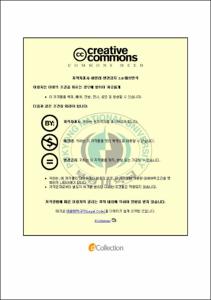하수슬러지의 처분에 대한 생태경제성평가
- Alternative Title
- Eco-efficiency evaluation of sewage sludge disposal
- Abstract
- The debate on efficient sewage sludge disposal has become an issue of national policy in the world. Recent law on waste management in Korea has prohibited to reclaim waste directly since July, 2003 and the Korea government has decided to forbid ocean disposal of waste including sewage sludge until 2012 with the effectuation of the 1996 protocol.
The purpose of this study was to search for eco-efficient disposal method for sustainable sewage sludge disposal and to increase in material recycling and energy recovery.
In this study, emergy analysis is applied to evaluate four different disposal methods of sewage sludge such as ocean disposal, incineration, landfill and compost. We can present eco-efficiency of sewage sludge disposal method with Emergy Yield Ratio(EYR) and cost-benefit based on emergy analysis.
The results of evaluation with EYR for 1ton of sewage sludge disposal were 122 for the ocean disposal, 0.02 for the incineration, 0.02 for the landfill and 0.04 for the compost respectively.
The result of cost-benefit evaluation for 1ton of sewage sludge disposal are as follows : the ocean disposal method gained 1,398,400 Emwon as net-benefit, the incineration method lost 109,250 Emwon as net-cost, the landfill method lost 36,921 Emwon as net-cost and the compost method lost 328,100 Emwon as net-cost.
These results show that ocean disposal is the most efficient system. The ocean disposal of sewage sludge depends on natural environmental role. In conclusion, the ocean disposal of sewage sludge is cheaper than other disposal methods and fisheries production increases in accordance with ocean production activity. Ocean disposal of sewage sludge is circulating system of resources and eco-efficiency method.
- Issued Date
- 2007
- Awarded Date
- 2007. 2
- Type
- Dissertation
- Publisher
- 부경대학교 대학원
- Alternative Author(s)
- Shin, Bong-Kyun
- Affiliation
- 부경대학교 대학원
- Department
- 대학원 환경공학과
- Advisor
- 이석모
- Table Of Contents
- Ⅰ.서론 = 1
Ⅱ.연구 배경 = 3
1. 하수슬러지의 발생과 처분 = 3
1.1 국내 = 3
1.2 국외 = 7
1.3 하수슬러지 처분에 관한 정책 = 8
2. Emergy 개념 = 11
2.1 Emergy 정의 = 11
2.2 Transformity = 11
2.3 Emwon = 13
Ⅲ.연구 방법 = 14
1. 에너지 시스템 다이어그램 작성 = 14
2. Emergy 분석표 작성 = 15
3. Emergy 지표 산정 = 16
Ⅳ.연구 결과 및 고찰 = 18
1. 시스템 경계의 설정 = 18
2. 하수슬러지 처분에 대한 emergy 분석 = 19
3. 하수슬러지 처분에 대한 효율성 평가 = 30
4. 하수슬러지 처분에 대한 생태경제성 평가 = 32
Ⅴ.결론 = 36
참고문헌 = 46
- Degree
- Master
- Files in This Item:
-
-
Download
 하수슬러지의 처분에 대한 생태경제성평가.pdf
기타 데이터 / 1.54 MB / Adobe PDF
하수슬러지의 처분에 대한 생태경제성평가.pdf
기타 데이터 / 1.54 MB / Adobe PDF
-
Items in Repository are protected by copyright, with all rights reserved, unless otherwise indicated.